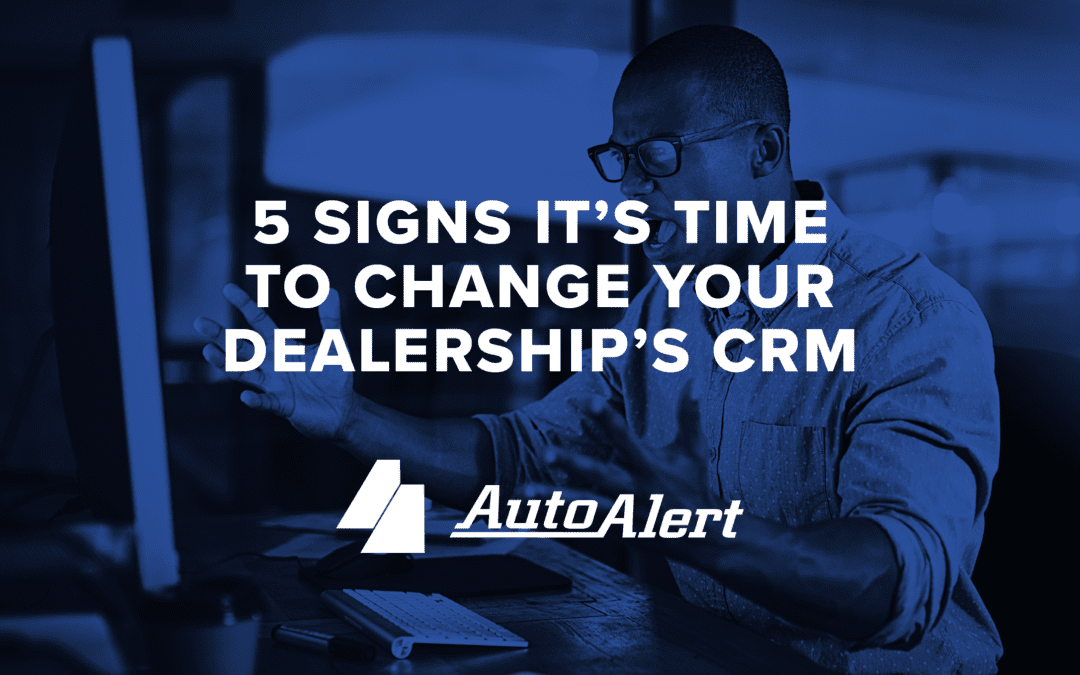

7 Critical CRM Mistakes Every Dealer Should Avoid
Avoid these 7 CRM pitfalls to improve customer relations and increase sales in your dealership.
1. Neglecting Data Quality
CRM data can be used to regularly improve your dealership’s business. You can use it to identify trends, track customer behavior, and improve your marketing and sales efforts.
Neglecting the quality of your data can have significant repercussions for dealerships. Inaccurate or outdated customer data can skew analyses, resulting in flawed decision-making processes. It can lead to ineffective communication and poor customer service experiences.
Maintaining high standards of data quality ensures that dealerships can rely on accurate information to inform their strategies and interactions with customers. Dealerships must invest in robust data management practices to avoid issues associated with neglected data quality.
Damage to Dealership Reputation
Decreased Performance
Lost Business
Longer Sales Cycles
2. Underutilizing CRM Features
Not taking full advantage of a CRM’s capabilities can hinder dealerships from fully leveraging their customer data to enhance relationships and drive growth.
Automotive CRM systems offer a wide range of functionalities, including automation, analytics, and customer segmentation, all designed to streamline processes and improve engagement. If these features are not used to their fullest extent, dealerships may miss out on opportunities to optimize workflows, gain insights into customer behavior, and personalize interactions. This can result in inefficient operations, missed sales opportunities, and diminished customer satisfaction.
To maximize the benefits of a CRM, dealerships must invest time and resources into understanding and implementing its various features effectively. This may involve training employees, customizing the CRM to align with specific dealership needs, and regularly reviewing and refining strategies based on data-driven insights gleaned from the system. By doing so, dealership teams can unlock the full potential of their CRM and strengthen their customer relationships.
43% of CRM users only use less than half the features of their CRM system
– Finances Online
3. Lack of Training
By investing in comprehensive training initiatives and promoting a culture of CRM usage, businesses can empower their employees to leverage the CRM to its fullest potential and achieve greater success in managing customer relationships.
Without proper training, employees may not know how to use the CRM effectively, leading to low adoption rates and inefficient system use. This can result in missed opportunities to streamline processes, enhance customer relationships, and drive dealership growth.
Comprehensive training programs ensure employees understand how to navigate the CRM system, input and access data accurately, and leverage its various features to support their daily tasks and responsibilities. Training should be ongoing, providing employees with continuous support and opportunities to enhance their skills as the CRM evolves and new features are introduced.
Fostering a culture that emphasizes the importance of CRM usage and providing incentives for adoption can further encourage employee engagement and commitment to utilizing the system effectively.
74% of users say CRM Software has improved their access to their customers
– Resco.net
4. Ignoring Customer Feedback
Customer feedback is essential for understanding their needs, preferences, and pain points. Incorporating it into CRM strategies can lead to more personalized and impactful interactions, stronger customer relationships, and improved overall satisfaction and loyalty.
Not incorporating customer feedback into your dealership’s CRM strategies can result in missed opportunities for dealerships to address issues, enhance products or services, and improve customer experience. This can result in decreased customer satisfaction, higher churn rates, and missed revenue opportunities.
Dealerships should actively collect and analyze customer feedback through various channels, such as surveys, social media, and direct communication. They can then use this feedback to inform CRM strategies, such as refining segmentation criteria, tailoring marketing campaigns, and improving customer service processes.
By prioritizing and acting on customer feedback within CRM strategies, businesses can demonstrate their commitment to meeting customer needs and expectations, leading to stronger relationships and long-term success.
5. Failing to Integrate with Other Systems
Integration ensures that data flows seamlessly across different departments and functions. This enables a more holistic view of the customer journey and drives more effective decision-making processes.
Not integrating the CRM with other systems like sales, marketing, and service platforms can lead to disjointed customer experiences and operational inefficiencies. Additionally, siloed systems can result in fragmented customer data, making it difficult to gain actionable insights and deliver personalized experiences.
To overcome this challenge, businesses should prioritize integration efforts, ensuring their CRM system seamlessly connects with other relevant platforms. This allows for the smooth transfer of data between systems.
By investing in integration initiatives, dealerships can break down silos, streamline processes, and ultimately deliver a more cohesive and satisfying experience for their customers.
6. Overlooking Mobile Accessibility
Suppose the CRM is not accessible and user-friendly on a mobile device. In that case, sales representatives may need help accessing critical customer data when meeting with clients outside the office or while traveling. This can lead to missed opportunities, delays in responding to customer inquiries, and ultimately, decreased productivity and satisfaction.
By optimizing the CRM for mobile devices, businesses can enable sales teams to access real-time customer information, update records, and conveniently input new leads or opportunities from anywhere. This enhances efficiency and responsiveness and helps sales representatives to deliver a more personalized and seamless customer experience.
Investing in mobile accessibility for CRM systems demonstrates a commitment to supporting sales teams’ success and meeting the evolving needs of modern businesses. It empowers sales professionals to be more agile and responsive in customer interactions, ultimately driving greater satisfaction and loyalty.
50% Improved productivity using a mobile CRM
– tech.co
7. Not Regularly Updating the CRM Strategy
Market and customer behaviors change over time, and not updating the CRM strategy accordingly can lead to missed opportunities to meet current customer needs and business objectives.
A stagnant CRM strategy may not account for changes in customer preferences, emerging trends, or new technologies that could impact how businesses engage with their customers. This can result in outdated processes, ineffective communication strategies, and, ultimately, diminished customer satisfaction and loyalty.
To avoid this, businesses should regularly review and update their CRM strategy to ensure alignment with evolving market dynamics and customer expectations. This may involve revisiting segmentation criteria, refining communication channels, and incorporating new data sources or analytics tools to gain deeper insights into customer behavior.
By avoiding these common mistakes, you can get the most out of your CRM, anticipate and adapt to shifting customer needs and preferences, and maintain a competitive edge.
When properly implemented, the ROI of a CRM software system can exceed 245%.
– IBM
Ready to start acquiring the vehicles you need and conquest customers on your service drive? Explore how AutoAlert’s Wishlist features can eliminate auction costs and streamline your vehicle acquisition process.



